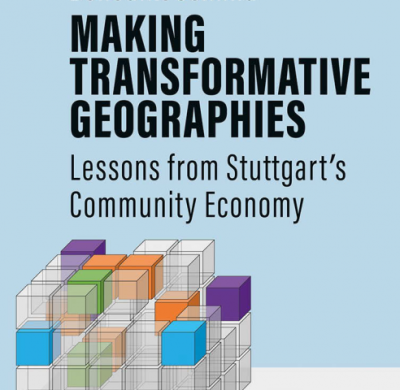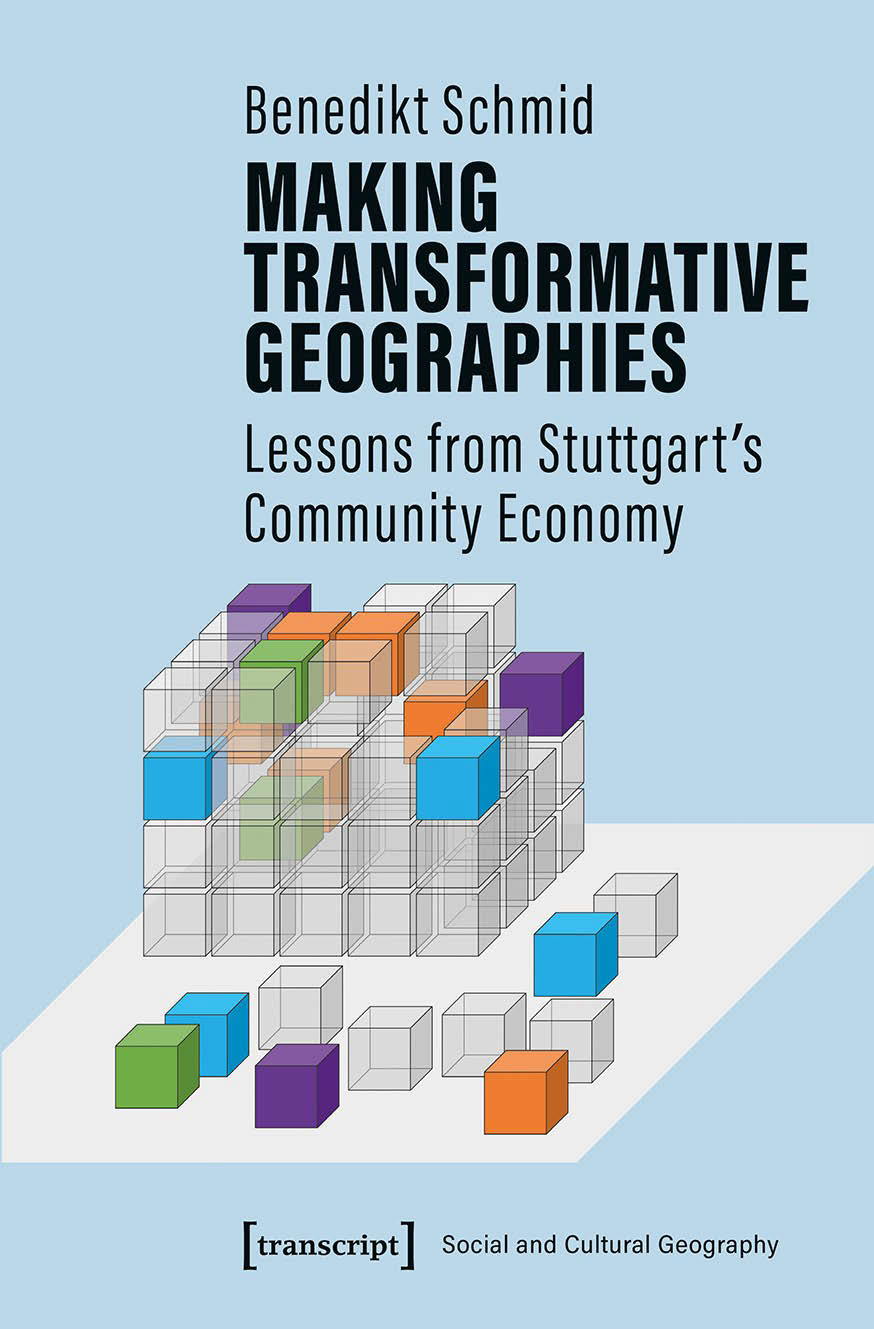Transformation, degrowth and Stuttgart's community economy

Benedikt Schmid‘s recent book Making Transformative Geographies: Lessons from Stuttgart's Community Economy explores the making of post-growth urban futures by researching how twenty-four initiatives in the German city of Stuttgart are forging a more just and sustainable world.
Schmid highlights that one major finding of the research is that “there is no black and white between sustainable/unsustainable and degrowth/business-as-usual trajectories.”
In their quest to put in place more just and sustainable practices the initiatives in the study navigate constraints and opportunities, and make various trade-offs in order to remain viable.
One example is Smark, an organization that runs fully automated 24-hour supermarkets that sell local and organic food but to survive in the highly competitive food retailing environment Smark also markets its automation technology to investors who do not necessarily share the commitment to sustainable consumption.
Most of the initiatives in the research have to make such compromises with one research participant commenting, “If I were to follow my idealism 100% then I may have my idealism but no team and no enterprise and consequently no effect.”
Schmid says, “These decisions over whether to compromise or perish are key leverage points that enable transformative practices, and so it could even be argued that compromise is perhaps more important than total adherence to degrowth principles—compromise might be considered a crucial degrowth practice.”
One strategy that helps the initiatives secure viability is the forging of links and coalitions with others who are also committed to doing something meaningful to address social and environmental issues.
For example, the open workshop Hobbyhimmel, a publicly accessible facility driven by a commitment to repair, local production and sharing, and equipped with high-tech and low-tech tools and machinery, provides crucial infrastructure for a number of initiatives in the research including Smark as well as Relumity, (which develops, produces and sells of sustainable and repairable LED lights), Lastenrad (a free cargo bike lending system), and Grünfisch (an aquaponics project).
The commitment to supporting other initiatives features in how one research participant from Hobbyhimmel talked about their work, “We support others who say ‘we do not accept the status quo’. They are people from all kinds of different projects … And they all do something within their area of focus, an action or a business or whatever. And we can support them in doing that.”
This emphasis on the day-to-day actions of organisations and groups characterises the book’s investigation of the transformative practices that are contributing to the shift to a more just and sustainable world.
Benedikt Schmid is a member of the Community Economies Research Network (CERN). He holds a doctorate in geography from the University of Luxembourg and the book is based on his doctoral thesis. Currently he is post-doctoral researcher at the chair of Geography of Global Change at the University of Freiburg. His research focuses on the role of community initiatives and social enterprises for the transition towards a post-growth economy.
Jenny Cameron

